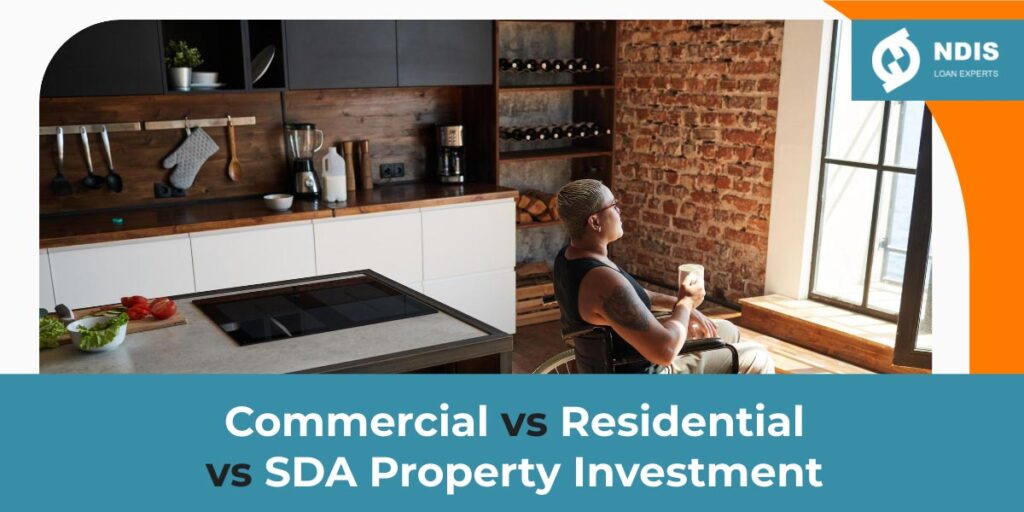If you want to invest in property in Australia, there have typically been two main types — commercial property or residential property. Nowadays, there are three broad options:
1) commercial,
2) residential, and
3) specialist disability accommodation (SDA).
All three of these property investment options are available to both individuals and self-managed super funds (SMSFs).
Read on to find out about the key differences between each NDIS SDA investment property sector, including why you will get better rental yields on SDA properties.
Investing in commercial property
Commercial property includes:
- retail premises,
- office space,
- warehouses,
- industrial/manufacturing/factory facilities,
- hotels/hospitality venues,
- commercially zoned land, and
- any other type of property that can be used for business purposes.
The pros of investing in commercial property
The advantages of investing in commercial property include:
- The opportunity to lease your property to your business, making you your own landlord.
- You can get higher rental returns and longer leases than you can with standard (i.e. non-SDA) residential investment property. However, it’s important to understand that commercial property can have longer tenant vacancy periods, especially during tough economic times.
- You can write off eligible property expenses as tax deductions, such as loan interest, property manager fees, and repairs and maintenance expenses.
Investing in residential property
Residential property includes houses, units/apartments, townhouses and villas. Instead of living in the property yourself, you can rent it out to tenants to earn income.
The pros of investing in residential property
The advantages of investing in residential property include:
- The high demand generally exists for residential property in most parts of Australia. Good properties in good locations are always in high demand.
- You can write off eligible property expenses as tax deductions. You can’t do that with owner-occupied residential properties.
Investing in SDA
SDA is residential accommodation for eligible NDIS participants who have the highest levels of care and support needs. SDA rent payments are made up of money from the SDA tenant’s NDIS plan, and a reasonable rent contribution paid directly by the tenant.
The pros of investing in SDA property
The advantages of SDA housing investment include:
- The fact that tenant rent payments are guaranteed by the government — which doesn’t happen with any other property investment type. The government incentivises for SDA housing investment to help boost the supply of appropriate dwellings. So it can generate much higher rental yields than both commercial and standard residential property investments.
- You can write off eligible property expenses as tax deductions.
- You are making a real difference to the SDA recipient’s quality of life.
Two important considerations when choosing SDA property are:
1) the type of property, and
2) the location.
Different types of properties have different demand levels in different locations.
There are four categories of SDA to cater for different tenant needs:
1) improved liveability (for people with high levels of intellectual, cognitive, or sensory impairment),
2) robust (designed to be highly resilient),
3) fully accessible (for people with significant physical impairments), and
4) high physical support (for people with significant physical impairments who also require very high support levels).
If you’re an investor seeking safe and high returns, SDA property investment might be exactly what you’re looking for. Please get in touch to learn more.


